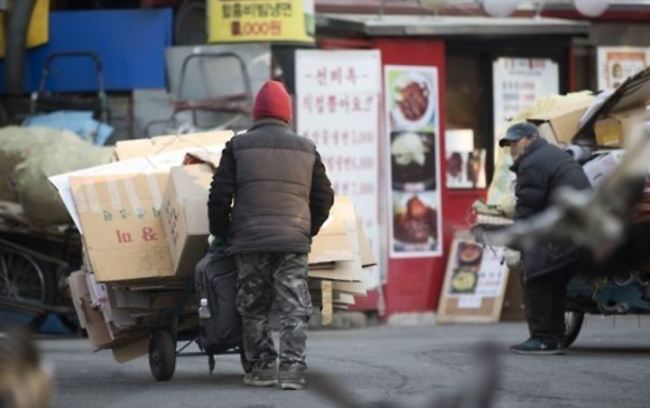South Korea's per capita national debt hit 13 million won ($11,900), more than double that of 2008 when the country was reeling from the aftermath of the global financial crisis, official data showed Sunday.
The National Assembly Budget Office said that as of Saturday, the national debt stood at 671.5 trillion won, up 4.6 trillion won from late last year and 2.2 times greater than the 309 trillion won tallied a decade earlier when the per capita debt stood at 6.31 million won.
It said that, based on the size of the country's budget for 2018, the total debt could grow to 708.2 trillion won by the end of the year.

"In effect, the national debt is growing by 1.31 million won every second," NABO said. It said the rise comes as the government increases its welfare-related outlays and injects more money into the economy to bolster growth, meaning Seoul is spending more than it brings in.
National debt is the sum of repayment obligations held by the central and regional governments and overseas borrowing by both the state and private sectors that needs to be handled in due course.
South Korea's debt stood at just 60.3 trillion won in 1997, but this started growing sharply in the following years and hit 111.2 trillion won in 2000. It surpassed the 200 trillion-won mark in 2004 and rose another 100 trillion won by 2008 before doubling in size to top 600 trillion won in 2016.
The incumbent Moon Jae-in administration has set its expenditure increase at 7.1 percent on-year in 2018, which is expected to cause the deficit in the operational budget balance to hit 28.5 trillion won.
The government has, moreover, said that it plans to increase outlays on social welfare, to help stem the low birthrate and support senior citizens, likely speeding up the rise in national debt going forward.
Local observers said policymakers are currently considering an increase in the 5.8 percent annual fiscal expenditure increase set through 2022 to meet the rise in demand for spending. If such a change takes place, the size of the national debt and the burden on the population will increase at a faster pace.
Cho Young-moo, a researcher at LG Economic Research Institute, said that the pressure to increase state spending will become greater with the rise in social welfare demands.
"Since the country needs to have some fiscal leeway to prepare for the possible unification with North Korea, it is prudent to examine all aspects of spending and procurement," he said. (Yonhap)







![[KH Explains] How should Korea adjust its trade defenses against Chinese EVs?](http://res.heraldm.com/phpwas/restmb_idxmake.php?idx=644&simg=/content/image/2024/04/15/20240415050562_0.jpg&u=20240415144419)












![[Today’s K-pop] Stray Kids to return soon: report](http://res.heraldm.com/phpwas/restmb_idxmake.php?idx=642&simg=/content/image/2024/04/16/20240416050713_0.jpg&u=)